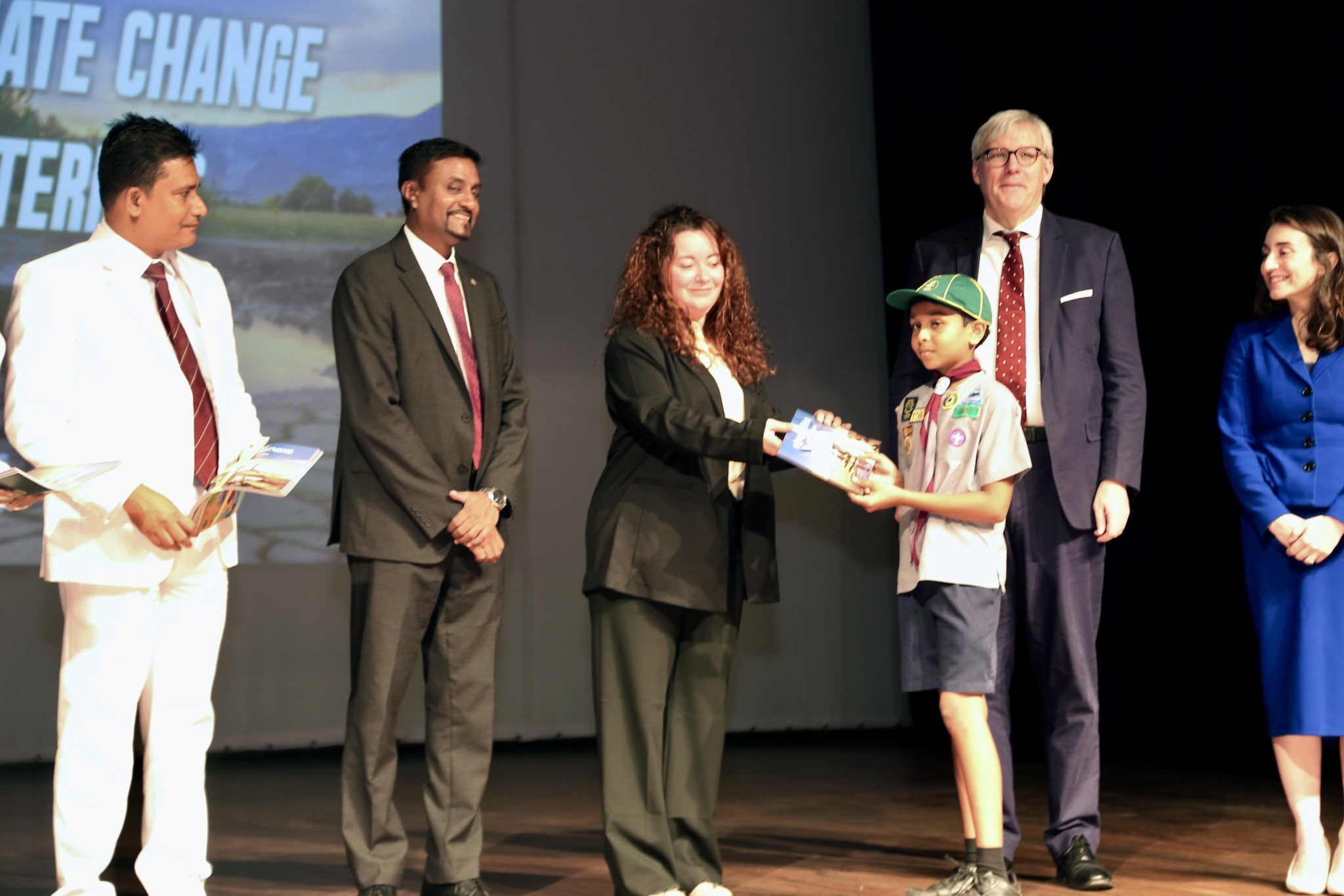Launch of Climate Change Educational Materials in Sri Lankan Schools
Marine scientists from the UK’s Joint Nature Conservation Committee (JNCC) and the Centre for Environment, Fisheries and Aquaculture Science (Cefas) have collaborated with the Central Environment Authority of Sri Lanka, the Sri Lanka Ministry of Education, and the British High Commission in Colombo to launch a new series of climate change educational resources for Sri Lankan schoolchildren.
The launch event took place at Nalanda College in Colombo on July 31, where climate change educational materials were handed over to primary and secondary students. The event was attended by H.E. Andrew Patrick, British High Commissioner to Sri Lanka; Mr. Venura Fernando, Chairman of the Central Environmental Authority; Ms. Charlotte Reeve from Cefas, UK; and Mr. M. Sivakumar, Deputy Director General of the Environment Education and Awareness Division of the Central Environmental Authority.
The educational resources were fully funded by the UK Ocean Country Partnership Programme (OCPP) and developed over two years by a team of skilled graphic designers and animators in Sri Lanka. The project produced animated videos and booklets designed to make the science of climate change engaging and accessible. The resources include two separate packs for junior and senior students, with each pack featuring four lessons on topics such as the science of climate change, the importance of oceans, climate risks to marine environments, and climate action options. The materials include real-life examples from Sri Lanka’s marine ecosystems and are available in English, Sinhala, and Tamil.

The initiative aims to promote climate awareness and respect for the oceans through engaging and inclusive educational content. The OCPP, funded by the UK government’s International Development, is a collaborative effort involving Cefas, JNCC, and the Marine Management Organisation (MMO) on behalf of the UK Department for Environment, Food and Rural Affairs (Defra). It focuses on addressing marine biodiversity, pollution, and sustainable seafood issues, while supporting coastal communities that rely on healthy marine ecosystems.
The educational videos can be accessed on the Central Environment Authority’s YouTube channel (Central Environmental Authority Publications – YouTube). Teachers interested in obtaining the resource packs can request them from the Ministry of Education or the CEA.

